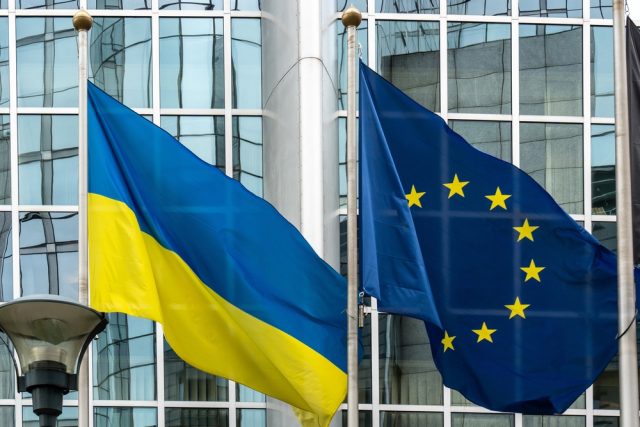
The conflict in Ukraine, now in its third year, continues to generate deep fractures, testing the cohesion of the European Union and the Euro-Atlantic community. As anticipation grows for a meeting between the Ukrainian and Russian presidents, the issue of security guarantees has become central. In this context, Europe finds itself divided between one group of countries ready for military commitment, and another one favouring more cautious solutions. This heterogeneity reflects not only different perceptions of the Russian threat, but also strategic divergences among governments.
THE COALITION OF THE WILLING
Within the “coalition of the willing,” an alliance of approximately thirty countries, France and the United Kingdom have assumed a leadership role in concrete intervention, which goes beyond the delivery of materials. At the same time, London has announced its willingness to deploy military contingents for specific tasks. This posture reflects an interventionist vision aimed not only at strengthening Ukraine but also at reaffirming the two countries’ role as European powers capable of leading continental security at a time of diminishing US centrality in the region. Alongside the two proponents, other member states have expressed support for direct engagement. Belgium, Lithuania, and Estonia have expressed similar willingness. Tallinn in particular has reiterated its willingness to contribute. The Baltics’ support is not surprising, given that these countries perceive themselves as the most exposed to Russian expansionism.
THE UNDECIDED COUNTRIES: CAUTION AND WAIT
Latvia has stated that a final decision on the deployment of troops can only be made following a peace agreement. Sweden has adopted a similar stance, stressing the need to clarify the nature of the mission. These positions reflect the uncertainty of countries that, despite perceiving the Russian threat, do not want to prematurely engage in an operation that could degenerate into a direct confrontation with Moscow. Waiting for a clearer negotiating framework represents a prudent strategy, useful for avoiding internal rifts and maintaining margins of diplomatic flexibility.
GERMANY, ITALY, AND POLAND: THE OPPOSITE FRONT
Another group of states has taken a stance against sending troops. Germany has reiterated that Berlin will provide equipment and resources but not personnel, as Germany has traditionally been reluctant to engage abroad. Poland, despite being one of Kiev’s main supporters, has ruled out direct intervention. Warsaw prefers to focus its resources on strengthening NATO’s eastern flank, perceived as crucial to its national security. Italy, through Prime Minister Meloni, has expressed its desire not to send troops. However, Rome has reportedly been open to alternative forms of contribution. Highly specialized resources are available for mine clearance operations and airspace control. Italian capabilities represent an essential contribution in a country like Ukraine, where an estimated 30% of the territory is mined or contaminated by unexploded ordnance.
SPAIN AND THE NETHERLANDS: LIMITED SUPPORT
Spain and the Netherlands have taken a middle ground, expressing their willingness to provide equipment and resources without committing military contingents. This choice responds to the need to support Kiev while avoiding crossing the symbolic and political threshold of sending troops. Madrid and The Hague view the balance between support for Kiev and prevention of escalation with Moscow as a key element of their foreign policy.
A CHALLENGE FOR EUROPEAN UNITY
The European debate on security guarantees for Ukraine reveals the complexity of a context in which national interests, threat perceptions, and domestic political calculations are inextricably intertwined. France and the United Kingdom lead the interventionist front, supported by some Baltic countries and Belgium. Other states, such as Germany, Italy, and Poland, maintain cautious positions, limiting themselves to providing technical and logistical support. Finally, countries such as Spain and the Netherlands choose to support Kiev without directly involving their own armed forces. The anticipation of a meeting between Zelensky and Putin makes it even more urgent to define a coherent European strategy capable of guaranteeing Ukraine’s security without dragging the continent into a new phase of open conflict. The European Union is thus called upon to perform a delicate balancing act: demonstrating unity and credibility without compromising international stability.



 Subscribe
Subscribe